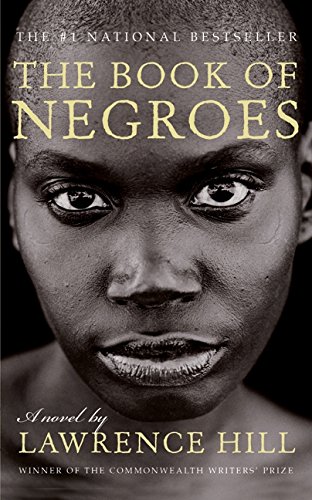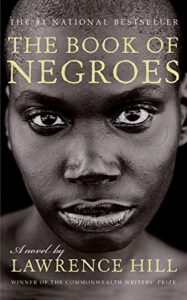Introduction
Lawrence Hill’s acclaimed novel The Book of Negroes (published as Someone Knows My Name in some countries) tells the powerful story of Aminata Diallo, an African woman captured into slavery as a child. This compelling work of historical fiction takes readers from West Africa to America and beyond, following Aminata’s extraordinary journey of survival. The novel stands out by exploring lesser-known chapters of Black history, including the experiences of Black Loyalists after the American Revolution and the founding of Sierra Leone. As one reviewer noted: There are other aspects of our history that need to be told
– and this book answers that call. Why It Matters: The story goes beyond typical slavery narratives to show moments of resistance, resilience, and self-determination throughout the African diaspora experience.
Synopsis
The novel traces Aminata’s life from her childhood in West Africa to her enslavement in South Carolina, her escape to New York during the American Revolution, and her eventual resettlement in Nova Scotia and Sierra Leone. The title refers to the actual historical document that recorded Black Loyalists who were evacuated from New York to Nova Scotia in 1783. Key Themes: The brutality of slavery, female resilience, the power of literacy, and the complex history of Black Loyalists. Aminata’s skills as a midwife and translator make her a unique witness to historical events.
Historical Context and Significance
The novel sheds light on lesser-known aspects of Black history, particularly:
- The role of Black Loyalists during the American Revolution
- The settlement of formerly enslaved people in Nova Scotia
- The founding of Sierra Leone by freed slaves
- The realities of the Middle Passage and plantation life
As noted in one review: When it comes to our history being displayed in film and in TV and in media, it’s always the same two narratives that are always displayed: slavery, civil rights… There are other aspects of our history that need to be told.
Hill’s novel addresses this gap by exploring underrepresented chapters of history.
Strengths and Critiques
Strengths
- Compelling protagonist with unique skills (literacy, midwifery)
- Explores rarely depicted historical events
- Balances brutal honesty with moments of hope
- Thought-provoking examination of agency and resistance
- Nuanced portrayal of complex relationships
Critiques
- Some historical liberties questioned (e.g., slave ship scenes)
- Pacing challenges in covering such an expansive timeline
- Secondary characters sometimes less developed
- Graphic violence may be difficult for some readers
One reviewer noted: I wonder how much of this is actually true and how much has been rewritten to make it good for TV… I’m anxious to see how much is historically accurate.
While the novel is fiction, Hill conducted extensive research, though some creative liberties were taken for narrative purposes.
Cultural Impact and Controversy
The title itself sparked discussion, as negro
is now considered offensive. As explained in one review: Negro is considered a very offensive word that was back in the 1800s… Lawrence Hill wasn’t allowed to publish it with this title in some countries.
The novel forces readers to confront uncomfortable historical language and realities. The story also challenges simplistic narratives about slavery, including the role of African slave catchers: When you actually dig into world history… there were usually two different narratives—you had somebody with a gun to their head… or they had no idea what they were sending people to.
The Television Adaptation
The 2015 miniseries adaptation received praise for its production values and lead performance by Aunjanue Ellis as Aminata. However, some viewers questioned certain creative choices:
- The depiction of a “party” atmosphere on the slave ship
- Pacing of Aminata’s early life events
- Historical accuracy of certain interactions
Despite these critiques, the adaptation succeeded in bringing this important story to a wider audience.
Final Verdict
The Book of Negroes is a vital contribution to historical fiction that expands our understanding of the African diaspora experience. While not without flaws, Hill’s novel achieves remarkable depth in portraying one woman’s resilience across continents and decades. As one reviewer concluded: I think Lawrence Hill did a great job of showing the journey of Aminata as a slave and the additional hardships that she had to face as a female slave.
The novel is particularly recommended for readers interested in:
- Untold stories of Black history
- Strong female protagonists
- Historical fiction with meticulous research
- Examinations of slavery’s global impact

